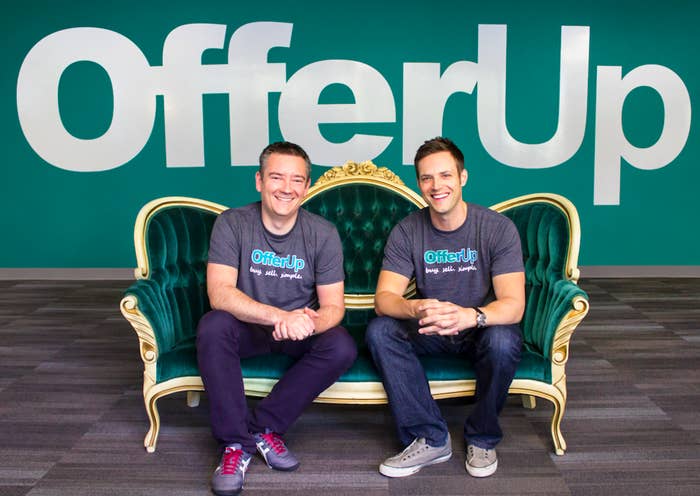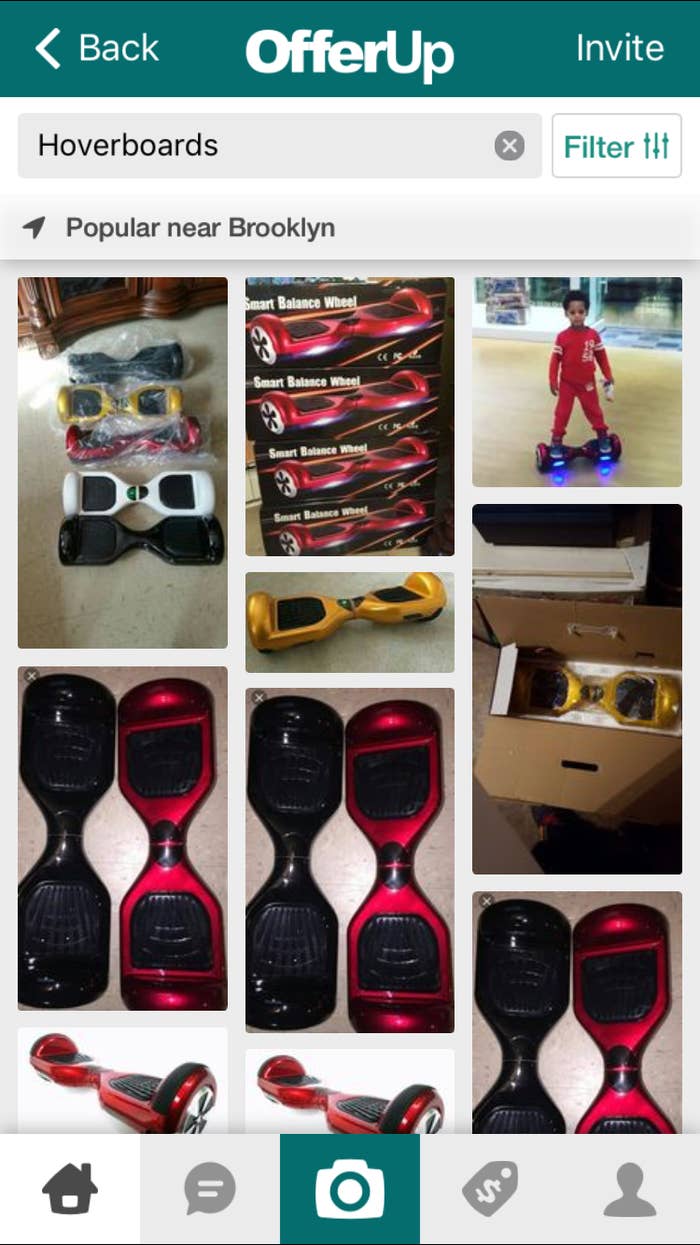
Craigslist is the crocodile of the tech industry — a perfectly evolved beast that has outlived competitors trying to buy into it, decimated an entire industry, and withstood the rise of mobile. It did all that while looking more or less exactly the same as it did when it launched in 1996. What can appear on the surface to be a lack of attention to the principles of modern design or underinvestment in product development is really just a predator operating at its evolutionary endpoint.
But in the era of the unicorn, never underestimate the urge to fight a crocodile. Why shouldn't Craigslist be overtaken by an easy-to-use, mobile-friendly marketplace for people who want to buy and sell things?
Investors have now put $90 million into one company trying to do just that. OfferUp, founded in Seattle in 2011, is far from a household name and has had little publicity, but its founders say the service has quietly become a significant player in e-commerce. They say $2.9 billion has been transacted over their marketplace so far this year, a big number for anybody in the industry. In comparison, Etsy's marketplace had $1.93 billion in sales in all of 2014, while industry giant eBay had $19.6 billion flow through its system in its most recent quarter.
OfferUp "is among the fastest growing marketplaces we have ever seen," Jeff Jordan, a partner at Andreesen Horowitz and board member at OfferUp, said in a statement. The venture capital firm first invested in OfferUp in May 2014, Jordan wrote in a blog post today, "but kept that information under wraps—at the company’s request—as they methodically rolled out to new cities." (Andreesen Horowitz is also an investor in BuzzFeed.)
When you first open OfferUp, you see an Instagram-like grid of photos of stuff available near you. I live in North Brooklyn, so I saw some knit goods, iPhones, formerly expensive jeans, cars, and hoverboards. You can also search for specific items.

So far, so good. But the founders say their real innovations are on the seller side, and in features that give buyers and sellers confidence in interacting with each other, even though most purchases are still done in cash. Buyers and sellers each have ratings, and can chat over the app without giving up a phone number or email address.
The two founders — Nick Huzar, the chief executive, and Arean van Veelen, the chief technology officer — said when surveys asked why people didn't buy or sell items online, many women said they were concerned about safety. To address that, they allowed third party ID verification. Buyers and sellers "have to go through the process to be verified to know they are the person they say they are," van Veelen said.
Another peace-of-mind feature is something users of dating apps and sites will be familiar with: letting users see mutual Facebook Facebook friends, or what OfferUp calls "trusted connections."
Building an app that women feel comfortable using is a priority, and the two male founders point to prominent women leading the business: A woman leads OfferUp's engineering team, and a woman is responsible for trust and safety features on the product team.
OfferUp raised $73 million earlier this year, and has raised a total of $90 million. While the company won't disclose a valuation, the Wall Street Journal reported in October that it had been valued "around" $800 million in a March funding round. "I wouldn't say that number is accurate," Huzar said. "What I would say is that we’ve 5X’d our growth since January, we’re a way bigger company than we were back then."
One metric that hasn't grown in the last year is revenue, which remains at the tidy figure of zero. "Today we’re not monetizing as a business," Huzar said. Hence all the cash the company has raised. With no revenues, it has grown from 15 to over 60 people employees in a year, and includes former employees of Amazon, eBay, and Airbnb.
Do Huzar and his team have any plans to get some money coming in? Advertising, perhaps, or taking a cut from sellers or charging for certain listings? If there's a plan, the company is keeping things vague for now. "There are existing models we could look to and potentially adopt and there are new things we could do," he said.
OfferUp is backed by big-name investors like Andreesen Horowitz, the hedge fund Coatue, and asset manager T. Rowe Price. "If you think about the market we’re going after, it’s a massive market," Huzar said. "Our investors are super excited by how fast we’re growing."
